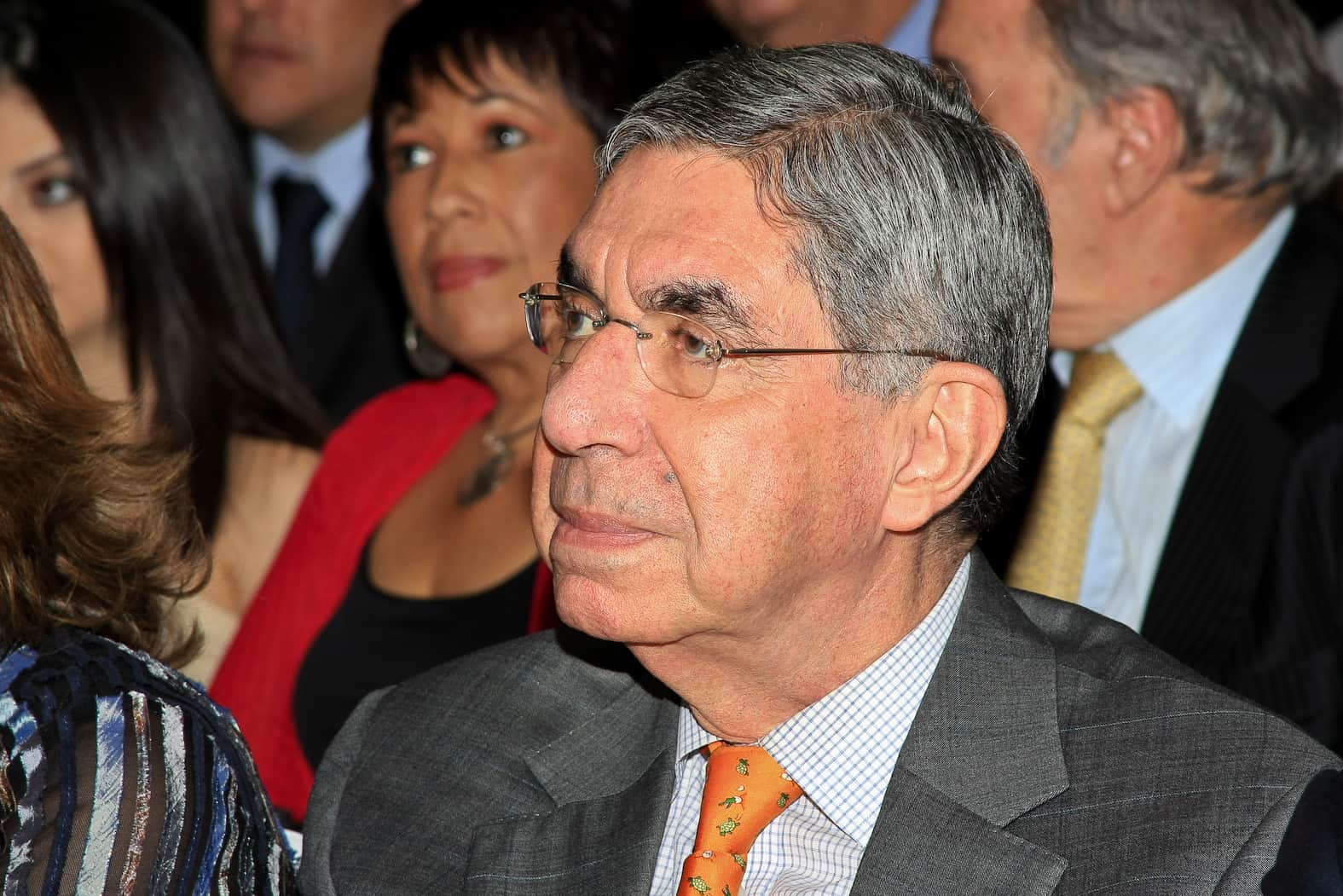Costa Rica’s former two-term President Óscar Arias Sánchez (1986-1990 and 2006-2010) hasn’t even waited a full year before twice publicly criticizing the new administration of Luis Guillermo Solís, who once belonged to Arias’ political party, the National Liberation Party, and was a member of the 1980s peace delegation that helped end the wars in Central America and delivered Arias a Nobel Peace Prize.
“The greatest concern is that the country is not on a good path,” Arias told Diario Extra last Friday. “If we continue as we are currently headed, we’ll end up with more poverty and more inequality, which is the opposite of what [Solís] pledged during the campaign.”
Arias, 74, who was admitted to a private San José hospital over the weekend for a pacemaker adjustment, said he is worried that members of the Legislative Assembly rejected proposed cuts to Solís’ 2015 budget, which by law must be passed by Nov. 30. Arias said the support for Solís’ budget – which is 19 percent higher than this year’s budget – “sends a bad signal to international organizations,” particularly in light of the country’s growing fiscal deficit.
“We could very soon suffer the consequences,” he said.
Unlike his political diagnosis, Arias’ health seems to be doing fine, with doctors discharging him from the Clínica Biblica on Monday.
Last September, Arias spoke out against the administration’s approach to reducing the fiscal deficit, which prompted Solís to fire back: “It seems to me that Dr. Arias had the chance to lower the deficit during his administration after having two years of surplus, but he didn’t.”
In last week’s comments to the daily, Arias also appeared to feel snubbed: “If he [Solís] doesn’t want me to help him with some ideas, well, then I simply won’t help him,” he said. “My attitude always has been to help the government of the republic, regardless of whom is president.”
Arias, who is the author of several books including, “Quién gobierna en Costa Rica?” (1976), “Grupos de presión en Costa Rica” (1970) and “Horizontes de paz” (1990), called Costa Rica’s democracy “dysfunctional,” adding that “it doesn’t progress, it doesn’t resolve problems and it doesn’t permit decision-making.”
He also mentioned infrastructure, saying the country is 50 years behind on public infrastructure projects, with a stagnant public-private concessions framework as the culprit. Concessions, he said, “are still criticized when it is the norm in all of the rest of the world.”
Arias also accused the Solís administration of dragging its feet on free trade, citing the handling of an invitation for Costa Rica to join the Pacific Alliance trade bloc, composed of Chile, Colombia, Mexico and Peru.
“The president hasn’t said if we’ll be members or not,” Arias said. “Not joining would be an enormous error. But, on the other hand, [Solís’] political party colleagues are the ones who fought against a free trade agreement with the United States, and they’re the ones who don’t believe in free trade.”
However, the usually opinionated former two-term president didn’t have much to say when asked about the current state of the Liberation party, which was handed an embarrassing defeat in the last presidential election.
Said Arias: “That’s a topic I’d rather not talk about. I’m not involved and I prefer to leave my opinions for later.”
Last week, the magazine ES Global included Arias in a list of the “50 most influential intellectuals in Iberoamérica.” He appeared along with Chilean novelist Isabel Allende, Pope Francis, Costa Rican economist Rebeca Grynspan, Mexican journalist Javier Sicilia, Cuban blogger and activist Yoani Sánchez and Mexican writer Enrique Krauze, among others.






